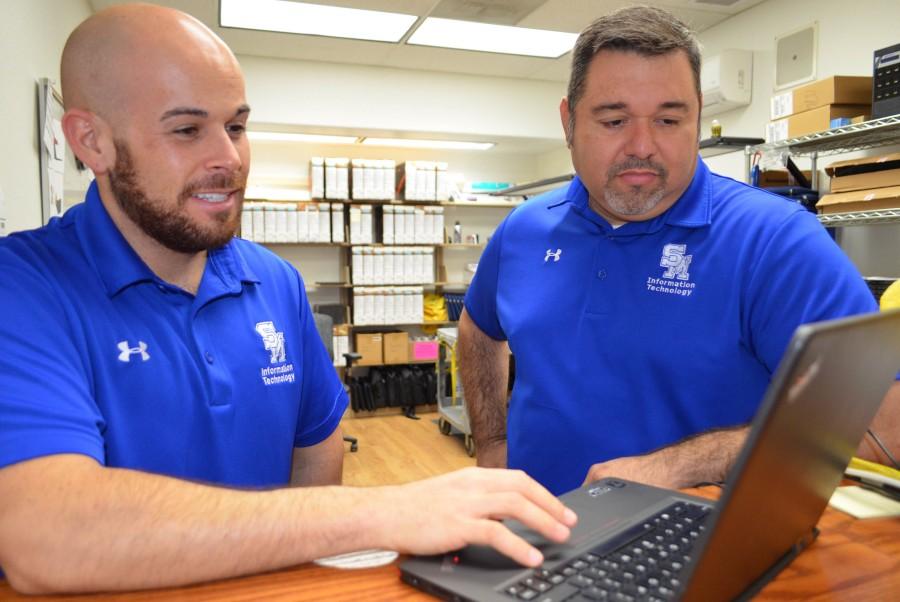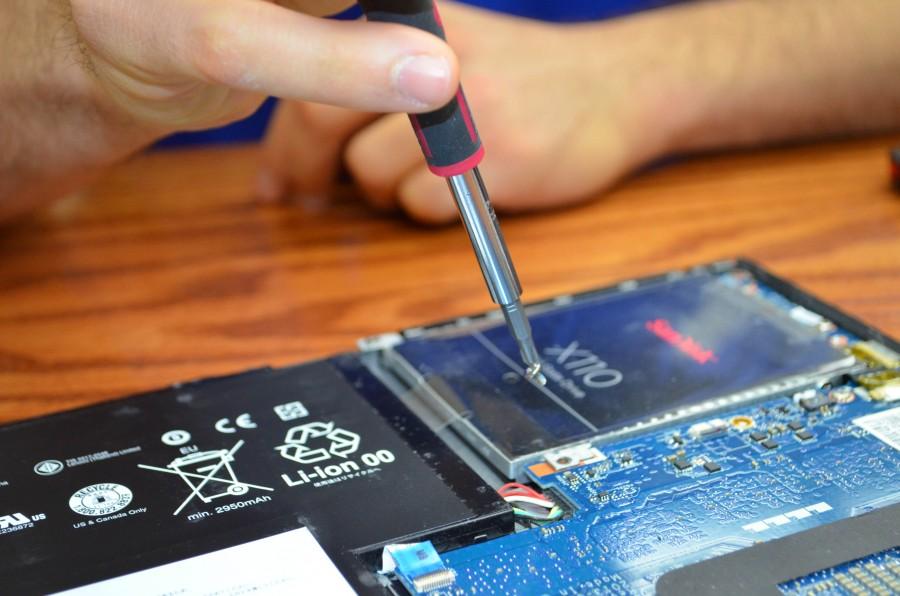Student privacy scares assuaged
SMCHS students’ misconceptions about IT’s activities are eliminated.
Two thousand sixteen presidential candidate Hillary Clinton reportedly broke the law during her term as Secretary of State by using her personal email address as opposed to the required government account to communicate. Though illegal, her rationale is that almost all government emails are subject to inspection, monitoring and sometimes even archiving. Because government monitoring of designated email accounts is a potential privacy threat, government officials are forced to take desperate measures to avoid consequences.
Ever since the introduction of the Lenovo Yoga tablets to SMCHS, concerns have arisen that certain SMCHS IT policies potentially violate our student privacy rights just as Clinton felt that certain government policies violated hers.
“I think the reading of private messages or emails is an absolute violation of privacy,” said senior Lindsey Narkchareon. “Whether I am talking to my teachers about a personal problem I need help with, or just messing around with my friends, it makes me uncomfortable. I don’t think that IT or the administration has a right to read what we write.”
Contrary to popular belief that the IT department sits around seven hours a day monitoring our tablets, reading our emails and instant messages, and checking our search history, individual checks are actually a rare occurrence.

The SMCHS IT Department works on one of hundreds of student computers that need to be fixed every day. And no, this work does not include reading student emails.
“We don’t go out reading information on a daily basis,” said IT Director Peter Leonard. “On a daily basis we don’t even look at students’ stuff. We do, however, monitor when the situation requires us to look into it. We go on to view the screen, see if they were playing games. Is it something that we do on a daily basis? No. We don’t have the time or energy to watch 1,700 students all day long. However, if a teacher has a concern we will check it out.”
Our tablets are peppered with notifications and warnings that the tablets are school property and that our activity on the tablets has the potential to be monitored at all times. According to IT, these warnings are required in case it becomes necessary to investigate a student’s activity, but this does not happen often.
“We do put the warnings on the screen to let you know that for any reason your machine may be broadcast or recorded or displayed so that you don’t assume that you have total privacy while using a school device,” Leonard said. “We don’t filter and go through emails to read them for a hobby or just to do something during the day. In the entire time I’ve been here — in 16 years — we’ve probably done it seven or eight times. Have we ever disciplined somebody? No. It’s not something that we are actually looking for or wanting to see. If we are servicing a tablet, personal information could accidentally be seen but the IT guys don’t go looking for it.”
Students are expected to responsibly utilize their tablets for class-specific activities during school and are not permitted to be participating in personal activities or entertainment such as playing games. Although it is common for students to occupy themselves with inappropriate activities in class, these everyday situations are not serious enough for IT to investigate.

The IT Department spends most of its time fixing tablets rather than “spying” on screens.
“We haven’t had a [serious] situation in months,” Leonard said. “We did it at the beginning of the year to show that it’s inappropriate to do those things during class. It’s something that we don’t need to do because our kids are good for the most part. In the long run, it’s the discipline of kids that is going to get them in the wrong situation.”
SMCHS has strict and seemingly irrational limitations on the tablets including many firewalls and blocks on websites that frustrate students who are attempting to online shop or view social media during class. Though some blocked websites are not actually inappropriate or harmful, SMCHS is required by federal law to thoroughly protect students through monitoring, as most of us are still minors. Not only does federal law require IT to limit our internet access, but the Diocese of Orange does as well.
“There is also a filtering system; we are all connected to the Diocese of Orange so everything goes through their connection,” Leonard explained. “They do have the ability to see where you’ve been on the Internet and we also have that ability. All of the schools in the diocese go through one filter and one location.”
The tablet restrictions are not meant to violate our privacy or infringe on our rights but simply to protect us. The SMCHS IT Department has our best interests in mind and they only investigate our tablets when they feel that there is a concern.
“We’re not spying on you or trying to see what’s going on in your life,” Leonard said. “We are just exposed to it by doing our jobs.”





